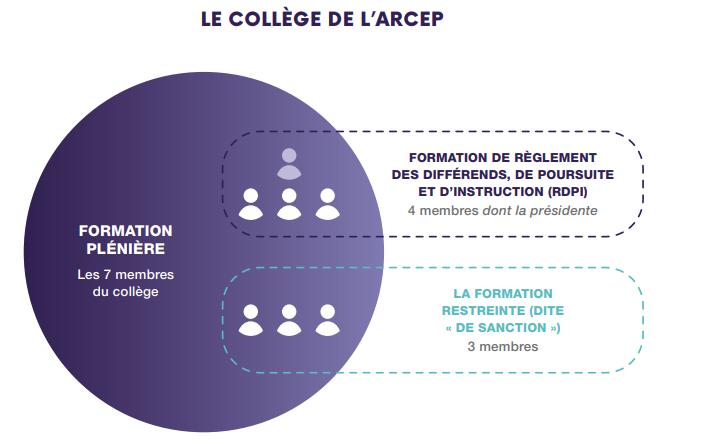In July 2023, the firm IELO-LIAZO SERVICES (hereafter IELO), an electronic communications operator serving the business market, applied to the Arcep body responsible for settling disputes, legal proceedings and investigations (aka “RDPI”), to settle a dispute that it was having with the Cœur de Savoie Association of municipalities (“Communauté de communes”). This dispute concerned access to the electronic communications network support infrastructures which are managed by the local authority.
Today, the RDPI body is issuing its decision.
Arcep is granting IELO’s requests regarding its ability to access the support infrastructures to which IELO had already requested access from Cœur de Savoie, and regarding the supply of map-based information pertaining to these infrastructures.
IELO formulated several requests for changes to the Agreement that it had concluded with Cœur de Savoie for access to the latter’s support infrastructures, in particular to expand the list of support infrastructures to which IELO had access.
One request pertained specifically to Cœur de Savoie’s refusal to allow IELO to access a specific pathway to be able to service a customer. After having ensured that the request from IELO was reasonable, Arcep concluded[1] that Cœur de Savoie had not produced evidence capable of proving that its refusal was based on objective, transparent and proportionate criteria, tied to a state of saturation on its infrastructures on the day that IELO made its request.
As a result, the Authority concluded that it was justified and reasonable that Cœur de Savoie submit a draft amendment to the Agreement to IELO within two months of having been notified of the decision, in order to provide the latter with access to the requested pathway or, failing that, access to an alternative support infrastructure pathway, enabling IELO to service its customer. The Authority also granted the ILEO request to be informed of support infrastructure plans for the area covered by the Agreement.
Arcep did not, however, consider reasonable ILEO’s request that Cœur de Savoie be required to accept in advance any future request for access to support infrastructures that IELO might make. It nevertheless delivered a reminder that the stipulations in the access Agreement proposed by the manager of the support infrastructures cannot create an obstacle to new access requests, which must be examined in accordance with the regulatory framework[2].
Reminder of the legal framework governing access to third parties’ civil engineering support infrastructures
To facilitate optical fibre deployment, and reduce costs, the French Postal and Electronic Communications Cod[3] stipulates that support infrastructure managers must grant reasonable requests to their infrastructures from an operator of a public superfast network. This Article states in particular that access must be provided under fair and reasonable terms and conditions, including pricing. This request for access can only be refused if said refusal is based on objective, transparent and proportionate criteria, such as the infrastructures’ technical capacity to support the public superfast network’s components.
The Code[4] also stipulates that the operator of the public superfast network will have access to information regarding the support infrastructures to which access may be requested, such as their location and layout[5]. The operator can obtain this information from the manager of the support infrastructure.
[1] With respect to the provisions contained in Article L. 34-8-2-1 of the French Postal and Electronic Communications Code (CPCE)
[2] CPCE Article L. 34-8-2-1
[3] CPCE Article L. 34-8-2-1, transposing Directive No. 2014/61/EU
[4] Article L. 34-8-2-2, also transposing Directive No. 2014/61/EU
[5] Pursuant to CPCE Article L. 34-8-2-1

How the Arcep Executive Board works:
Three of Arcep’s different competencies are exercised within three distinct Executive Board bodies:
• The Plenary Body which is composed of all seven Board members;
• The Body responsible for settling disputes, legal proceedings and investigations (RDPI) which is composed of four of the seven Board members, including the Chair, and which is responsible for opening prior examination procedures, issuing formal notices and notifying grievances;
• The restricted (sanctioning) Body, which is composed of the three remaining Board members, and responsible for imposing (or not imposing) penalties.
